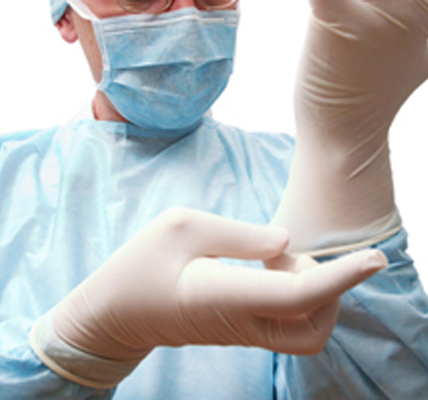Instructions for completing this course
Target Audience
Nurses and Health Professionals who are administratively responsible for the infection control program in an ambulatory surgical setting.
Contact Hours
5.0 Contact Hours will be awarded upon successful completion of this activity.
The contact hours for this activity expire: March 25, 2026
This continuing nursing education activity was approved by the Association of periOperative Registered Nurses, Inc., an accredited approver by the American Nurses Credentialing Center's Commission on Accreditation.
AORN recognized this activity as continuing education for registered nurses. This recognition did not imply that AORN or the ANCC Commission on Accreditation approved or endorsed any product included in the presentation.
Purpose / Goal Of This Activity:
The goal of this program is to present registered nurses and other interested healthcare professionals with the principles and practices that are widely accepted as the foundation of a successful infection program in the ambulatory surgical setting.
Upon completion of this training activity, a registered nurse who has infection control program responsibilities at an ambulatory surgical center (ASC) will have the knowledge and resources sufficient to determine if the key components of an infection control program are in place and in line with nationally recognized standards and regulations, and will apply this knowledge in practice.
Objectives
Upon completion of this activity, the participant will be able to:
- Identify several sources of standards used to assess key components of an infection control program at an ASC.
- Define the role of the designated infection control program manager at an ASC.
- Summarize mechanisms by which pathogenic organisms are transmitted to patients and staff in the health care setting.
- Describe practical strategies to reduce the risk of transmission of pathogenic organisms.
- Choose personal protective equipment appropriate to the task being performed.
- Assess engineering controls that reduce exposure of patients and staff to pathogens.
- Discuss several work practice controls that reduce exposure of patients to pathogens.
- Determine the correct method for reprocessing a piece of reusable patient care equipment.
- Cite the most important considerations in the sterilization process of critical patient care equipment.
- Specify the conditions under which immediate use steam sterilization may be performed.
- Outline important steps in reprocessing semi-critical patient care equipment.
- Point out the important considerations disinfecting non-critical patient care items and items in the surgical suite environment.
- Explain the liability associated with reprocessing a single-use disposable item.
- Propose occupational health strategies for preventing the transmission of communicable diseases in ambulatory surgical settings.
- Summarize the procedures necessary to manage employee exposures to blood or body fluids containing blood.
- - - CLICK HERE if you wish to view a more detailed syllabus. - - -
Requirements For Successful Completion of this Program
Using this Self-Directed Learning Module, participants must review the objectives and read the materials. As participants read through the material on th e course pages, they will be occasionally prompted to answer exam questions.There is a total of 42 multiple choice questions in this program. A grade of 80% (34 correct answers) must be achieved along with submission of a program evaluation to receive a certificate.
The Course Reference Page available at the completion of the course will contain many useful reference documents from notable sources pertinent to material covered in this course. Links to all nationally recognized guidelines and recommendations necessary to serve as the basis for development of policies and procedures in the ambulatory surgical setting (as required by CMS) will be available on that page at all times following successful completion of the course.
The course work was authored by Regina Napolitano, RN, MA, CIC who serves as the Senior Education Development Specialist at ProCEO Inc. (www.ProCEO.com).
Disclosures from Authors and Program Planners
Neither the planners nor the presenters have any conflict of interest related to this program. No commercial support has been obtained for this offering. There is no discussion of a product used for a purpose other than for which it is approved by the FDA.
Registration Fee
The registration fee for this course is $75.00. Your registration fee includes two opportunities to pass the examination and permanent access to all reference material.
If you have any questions or concerns about this course, you may contact a Customer Service representative at 888-345-6788, or e-mail us at ceo.contact7@proceo.com.
REGISTER FOR COURSE
